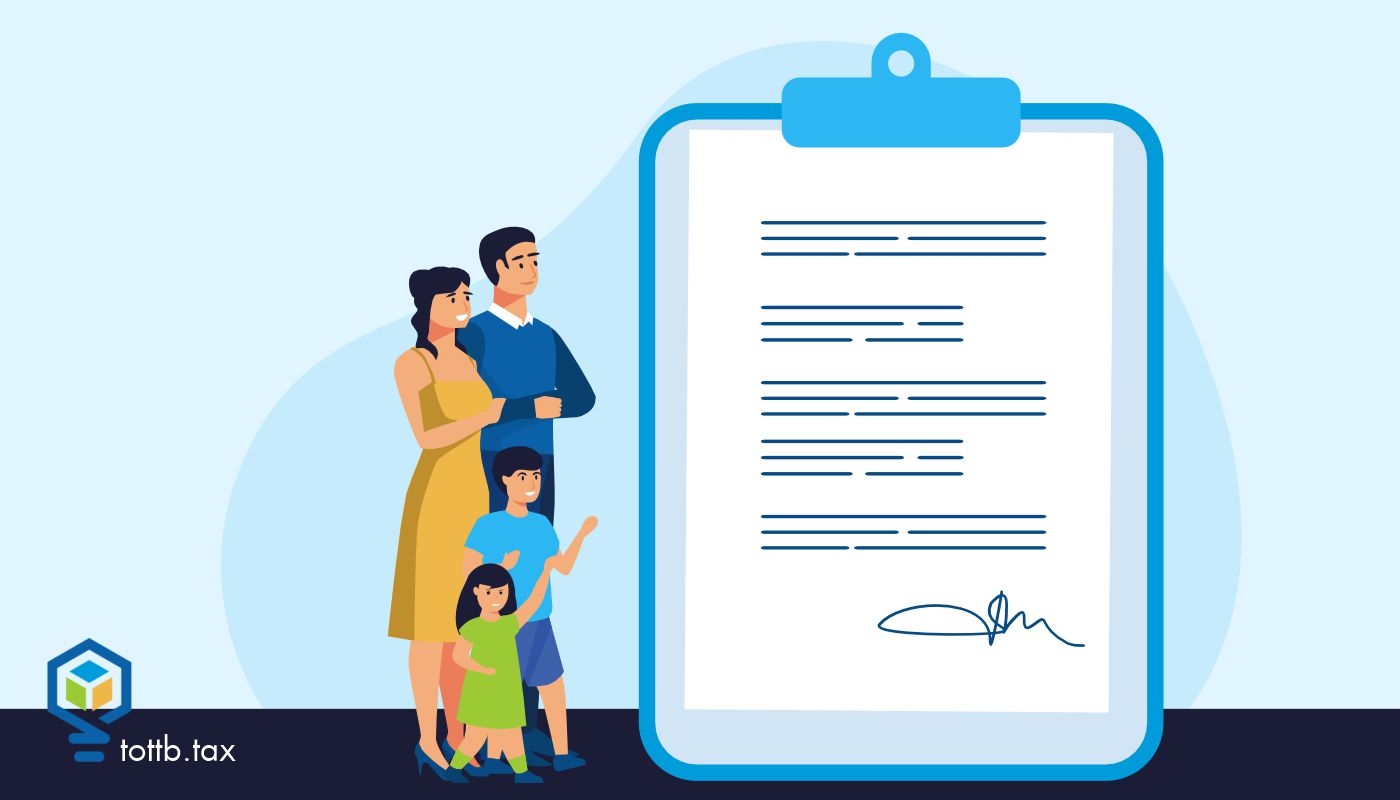CURRENT EDITION

An Analysis of the OBBBA’s Trump Accounts (Part 2)
In part one of this series, I went over the basics of the new retirement accounts for minors, Trump Accounts, which were created as part of the One Big Beautiful Bill Act (OBBBA). Trump Accounts allow the Government, Charitable Organizations, Parents, and others to contribute to a child’s savings, usually on an after-tax basis. These accounts then transition to a traditional individual retirement account (IRA) when the child turns 18. Although the contribution limits act like non-deductible traditional IRA contributions and have a contribution limit of only $5,000 per year, they do not have the same earned income requirements that traditional IRA contributions have. This means that children are able to accumulate savings even without earned income. This article presents several scenarios to examine how Trump Accounts may play into an overall savings strategy for children.
READ MOREOffice in the Home – Real Estate
As many of us become more accustomed to working from home, it is easy to forget that some industries were regularly working remotely prior to the COVID-19 pandemic. It might be easy to forget altogether that real estate businesses also qualify for the same deductions as other businesses. Yet, it is often easy to overlook something like a home office for a real estate rental operation, but the home office typically functions as the glue holding these businesses together. To learn more about the how and the where to grab this deduction, keep reading.
Read MoreJust Good Business: When It’s Time to Hire a Pro
Often, clients and potential clients grumble when their tax professionals recommend hiring a bookkeeping and/or accounting professional. Why? Because many people (including some tax practitioners) simply do not understand the miraculous complexity that is double-entry accounting. As some are probably aware, proper bookkeeping and accounting are much more than simply entering income and expenses into a software program. Nevertheless, it is sometimes difficult to explain the nuances of and the necessity for double-entry accounting to clients. Following are the specific circumstances under which clients should hire a professional bookkeeper and/or accountant. And remember, what works for clients also works for busy tax and accounting professionals. You may, after reading this article, decide that it’s in your own best interests to outsource your business’s tax and accounting work both for peace of mind and for time and money saved. So, when is it just good business to gently insist that your client hire an accounting professional? Keep reading to find out.
Read MoreYour Questions Answered: The Dubious Anonymity of Virtual Currency Transactions
Question: Bitcoin being treated as property by the IRS was partially related to not being “legal tender in any nation.” Does the fact that El Salvador is now using cryptocurrency have any cascading ramifications for tax/currency treatment of bitcoin in the U.S.? Answer: The Department of Justice recently issued a news release to strike terror in the hearts of anyone attempting to execute cryptocurrency tax shenanigans. Similarly, the federal court for the Northern District of California entered an order authorizing a John Doe’s summons on Payward Venture Inc. and subsidiaries d/b/a Kraken. The IRS wants to look at the records of U.S. taxpayers who conducted at least the equivalent of $20,000 in transactions in cryptocurrency during the years 2016 to 2020. What’s with all the sudden interest in crypto, and why are the feds looking to snoop around retroactively? If you’re curious to find out why and how to stay off its radar, keep reading.
Read MoreConservation Easements: Good Execution Is the Key
If someone approaches your client offering four to one deductions on conservation easements (probably somewhere in the Southeast), you need to do your best to talk them out of it. And if you cannot, it may be best to let some other practitioner have the honor of preparing their return. On the other hand, if your client has land or a building they would like to preserve forever, a conservation easement may be just the thing. Assuming the desire to have the property preserved anyway, it is about as close to a free lunch as you can get. Good execution is the key to making it work. Read on to learn how!
Read MoreHow to Qualify for More Interest Deductions You Didn’t Pay
Question: Can I increase my business tax deductions with interest the Small Business Administration (SBA) paid during the COVID-19 pandemic? Answer: In short, yes. But it depends on the type of loan, forgiveness options, and loan status. We here at Think Outside the Tax Box sure like the way you’re thinking! One of the benefits created through the CARES Act included payments on existing SBA loans. In addition, new SBA loans created through the PPP and EIDL programs included deferred payments for the first six months of the loan. Depending on your current situation, you may actually qualify for the interest deduction, even if the SBA paid it on your behalf! To learn how to qualify, continue reading.
Read MoreJust Good Business: What to Consider When Choosing an Entity
It’s every tax professional’s favorite answer to the question “How is your business organized?” “I have an LLC.” It’s the non-answer answer. Unfortunately for many clients and practitioners, clients often decide to form an LLC for no reason other than “they said I should” and more often cannot provide a good answer when the practitioner asks, “Who is ‘they?” Ideally, small business clients should consult both an attorney and a tax professional when deciding to form a business entity under state law. Because while state law governs entity formation and many aspects of entity administrative compliance, federal and state tax law determines which tax returns you need to file and which tax laws apply to the entity. It is just good business to make a mindful, proactive choice when choosing a type of business entity. Making a conscientious choice means asking the right questions. And when choosing a business entity, asking the right questions means asking questions about matters other than simply tax considerations.
Read MoreOffice in the Home – Partnerships
The COVID-19 pandemic has altered many aspects of our society, perhaps permanently. One of these is the need to physically go to the office to get work done. Like all businesses, partnerships are no exception. While the Tax Cuts and Jobs Act of 2017 (TCJA) suspended this deduction for employees of the partnership until 2025 . However, partners may still take advantage of this often-overlooked tax benefit. The key is in how to report it. Read on to learn how!
Read MoreQualified Small Business Stock and Your LLC or S Corporation
Your optimal choice of entity depends on many factors, including which tax breaks and loopholes are available for that entity type. The C corporation leaps to the top of entity choices if your C corporation stock will qualify as small business stock (QSBS). The tax law gives two huge tax breaks to QSBS: 1. Up to $10 million of gain exclusion upon sale or the stock’s liquidation; or 2. Tax-deferred rollover of gains if the taxpayer purchases additional QSBS. But beware: There are two issues that are ambiguous under the law that could cause you to not qualify for either of these tax benefits. Read on to learn more!
Read MoreNOT A MEMBER YET?

SUBSCRIBE TO GET ALL OF OUR
GREAT ARTICLES AND RESOURCES!
CURRENT EDITION

An Analysis of the OBBBA’s Trump Accounts (Part 2)
In part one of this series, I went over the basics of the new retirement accounts for minors, Trump Accounts, which were created as part of the One Big Beautiful Bill Act (OBBBA). Trump Accounts allow the Government, Charitable Organizations, Parents, and others to contribute to a child’s savings, usually on an after-tax basis. These accounts then transition to a traditional individual retirement account (IRA) when the child turns 18. Although the contribution limits act like non-deductible traditional IRA contributions and have a contribution limit of only $5,000 per year, they do not have the same earned income requirements that traditional IRA contributions have. This means that children are able to accumulate savings even without earned income. This article presents several scenarios to examine how Trump Accounts may play into an overall savings strategy for children.

Another Tax-Smart Way to Save for Retirement
Most clients are familiar with the well-known accounts to save for retirement, such as the 401(k) and IRA. Some clients might be able to supplement those with a lesser-known vehicle as well. A life insurance retirement plan (LIRP) is a type of permanent life policy with a cash value basically funded by overpaying premiums. The money can eventually be taken as a tax-free loan against the policy for anything from medical expenses and long-term care to supplemental retirement income to, for the wealthy, the payment of taxes on large estates.

Taxes & Taxidermy: Rampaging Through The Tax Code On The Back Of A Stuffed Rhinoceros
Is the taxidermy fee for a stuffed bear deductible? If so, should I depreciate it? What would the basis and class life be for depreciation? Those are real questions asked in a group chat with some colleagues. Of course my answer was “It depends.” And, like all good tax professionals, I proceeded to ask a series of follow-up questions. And, like a good writer, that got me to thinking about all of the tax-related case law surrounding taxidermy and what it can teach us—it’s more than one might think.







